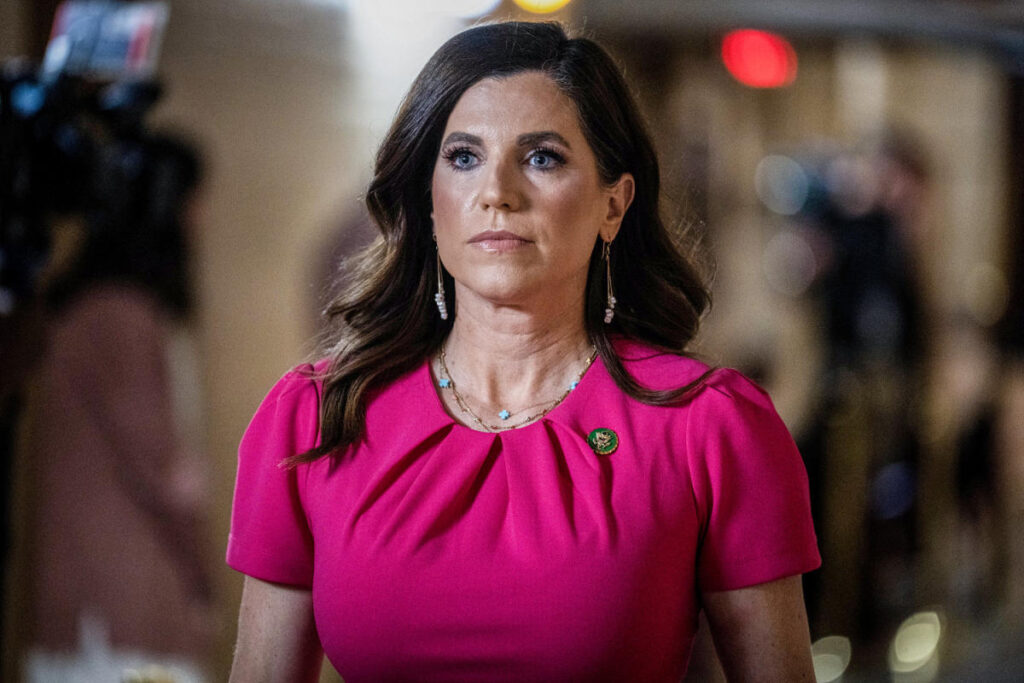Amid growing concerns over the potential influence of government interactions with social media platforms ahead of the upcoming elections, Rep. Nancy Mace, the leading Republican on a relevant House subcommittee, has escalated her investigation into the Biden administration’s role in regulating information shared online. In a recent move, Mace, who chairs the House Oversight Subcommittee on Cybersecurity, Information Technology, and Government Innovation, has threatened to issue a subpoena to the administration for communications between government officials and social media companies such as Meta, which owns Facebook. This threat arises from a lack of response from the administration to Mace’s earlier requests for information, highlighting a critical moment in the intersection of politics, technology, and public discourse as the November elections approach.
In her communications, Mace communicated her belief that it is vital for the Biden administration to be transparent concerning its dealings with social media platforms, particularly regarding how these interactions might impact the dissemination of information to the electorate. She cites past admissions by the administration about its collaboration with social media companies to manage the flow of misinformation, particularly related to Covid-19, as points of concern. Notably, Mace criticized the administration for not retracting its previous statements or committing to cease such practices, fostering distrust among Republicans who feel that their voices are being suppressed in an environment where misinformation policies may align closely with political interests.
The controversy highlights the ongoing tensions between conservative figures and the Biden administration over content moderation on social media. Allegations have surfaced regarding the administration’s supposed pressure on platforms like Meta and Twitter to remove content deemed unfavorable or politically damaging. An earlier ruling by the Supreme Court dismissed claims that the Biden administration had inappropriately influenced these companies’ content moderation policies, suggesting that any adjustments made by social media platforms were independent of governmental pressure. This ruling, however, hasn’t quelled the Republican narrative that posits a coordinated effort by the government to control online narratives.
Adding another layer to the dialogue, Meta’s CEO, Mark Zuckerberg, acknowledged past instances where the White House exerted influence over content moderation, particularly concerning public health information. Though he admitted to complying with some requests from the administration, he has expressed regret over those decisions, indicating a complex relationship between social media companies and governmental expectations. This revelation has fueled Republican accusations that the administration seeks to manipulate social media narratives to its advantage, leading to calls for a deeper examination of these practices.
The official requests made by Mace outline a demand for a broad archive of communications between federal entities and social media companies, focused particularly on discussions concerning information suppression. This includes any related discussions that have occurred since January 2024. Despite the intensity of Mace’s inquiries, Democrats, notably Rep. Gerry Connolly, challenge the notion that the Biden administration’s actions warrant such scrutiny. Connolly suggests that allegations of collusion have often been overblown, pointing instead to issues arising from past Republican engagements with social media entities, including the Trump campaign’s connection with Elon Musk as a focal point of concern within campaign finance discussions.
Overall, the evolving discourse surrounding the Biden administration’s interaction with social media platforms signifies a broader national conversation about the freedoms of expression, the accountability of tech companies, and the role of government in safeguarding the integrity of information before crucial electoral processes. The forthcoming actions from Mace’s subcommittee could shape future strategies employed by both parties as they navigate this contentious issue, especially as public perceptions and regulatory environments continue to shift in response to growing concerns about misinformation and its effects on democratic processes.

